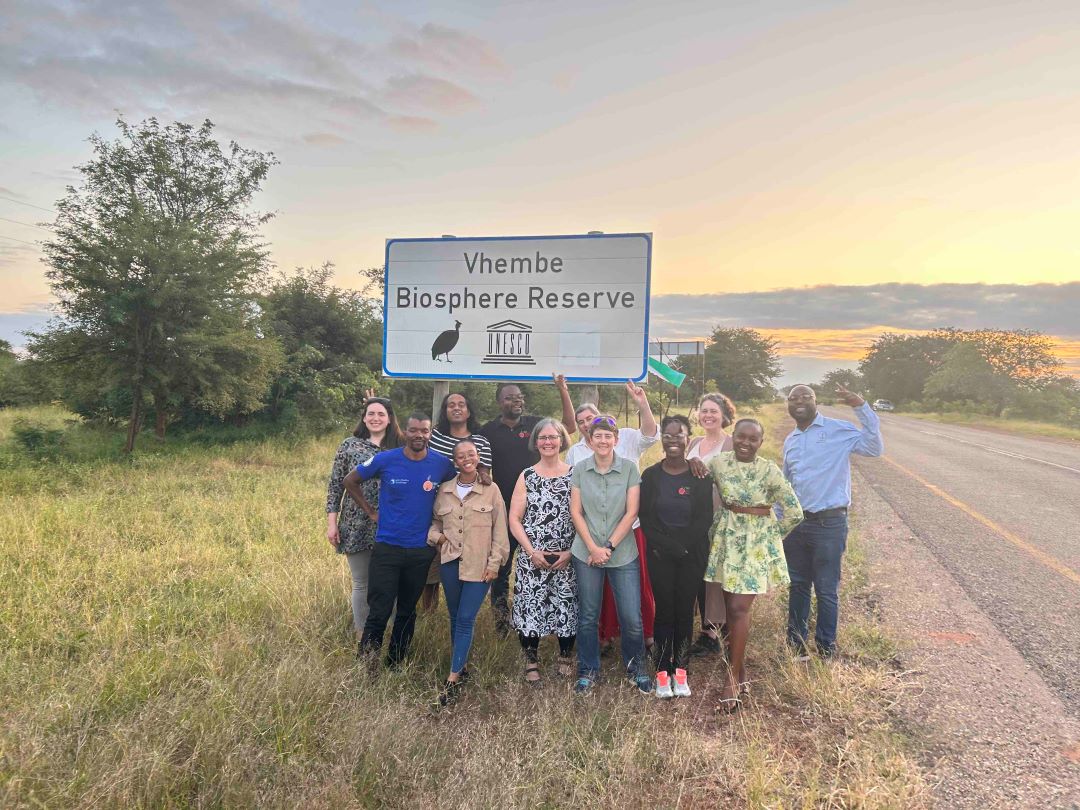
USask-led international partnership for sustainability education receives unprecedented funding
From South Africa to the Saskatchewan countryside, University of Saskatchewan (USask) researchers are revolutionizing how we educate the next generation – and ourselves.
Dr. Maureen Reed (PhD), a professor in USask’s School of Environment and Sustainability (SENS), is the principal investigator on a multinational education project that received more than $500,000 CAD from the Spencer Foundation in the United States.
“It’s a unique foundation, and I think (the funding) suggests that what we’re trying to do is meaningful not just for ourselves but beyond,” Reed said.
This is the first time that a USask-led project has received this grant funding from the Spencer Foundation, which is considered one of the biggest supporters of education research with a focus on initiatives that provide educational opportunities for disadvantaged or marginalized communities.
Titled “Co-designing Transdisciplinary Sustainability Education,” this project is meant to offer training internationally that draws on the collective knowledge of community partners and academic researchers to support learners inside and outside of academia. The goal is to work together to address key sustainability challenges.
Some of those obstacles include power, capacity and equity imbalances in sustainability education, and context-specific challenges including unemployment and biodiversity loss.
“I think that’s what is exciting in sustainability sciences – there's been this turn towards what we call transdisciplinary or community-engaged work,” Reed said. “[Those conducting research] need to learn how to do that better, that engagement, in a way that is meaningful and leads to long-term relationships and transformational change.”
The grant will support two South African-based initiatives. The first is to provide training to support youth in rural areas of the Vhembe Biosphere Region, where youth experience unemployment rates of around 62 per cent. Skills offered by academics and practitioners will provide youth with skills and knowledge to become entrepreneurs in the green economy – industry and employment opportunities focused on reduced emissions, resource sustainability, and the preservation of biodiversity.
The second initiative will support work involving practitioners in Kruger to Canyons Biosphere Region who will work with Indigenous and rural youth to develop locally informed education materials to encourage local people to address climate change through nature-based solutions.
The Canadian initiative will introduce Indigenous-led land-based education into the public school system and into academia by “training the trainers,” as Reed puts it.
Working with the Mistawasis Nêhiyawak Cree Nation and practitioners from the Redberry Lake Biosphere Region, USask researchers and educators will develop educational modules and resources for land-based education for youth in central Saskatchewan. They will also create educational opportunities for USask students and faculty to improve their understanding of, and respect for, the rights of Indigenous Peoples and associated cultural stewardship practices and research protocols.
“I feel pretty strongly that at the University of Saskatchewan, there’s good work being done on reconciliation and Indigenization at the level of individual researchers,” Reed said. “But there’s a lot of work institutionally that we can do better ... I’m hopeful we can create partnerships within and beyond the community that can help us learn more, myself included, so we can create meaningful impact at the institutional level.”
Learning exchanges between South Africa and Canada are planned so that researchers and practitioners can share lessons learned with one another and gain insights about sustainability land-based education in an international context.
Reed is also the principal investigator of the Transdisciplinary Education Collaboration for Transformations in Sustainability (TRANSECTS) – an international partnership for research training funded by the Social Sciences and Humanities Research Council (SSHRC).
She said the financial support from the Spencer Foundation helps fill the gaps of TRANSECTS as funds from the foundation can be used explicitly for practitioners and youth who are not currently in the university sector and could pave the way for longer-lasting projects and programs in local and international communities.
“My hope is that we can create a model that, after the initial funding has passed, we leave something behind that continues on,” Reed said.
Other investigators on this project include researchers in the College of Education and the College of Agriculture and Bioresources, partners with the community Mistawasis Nêhiyawak and the Redberry Lake Biosphere Region.
From South Africa, partners include scholars and practitioners at Rhodes University, the University of Witwatersrand, the University of Venda, the Vhembe Biosphere Region and Kruger to Canyon Biosphere Region.
Together, we will undertake the research the world needs. We invite you to join by supporting critical research at USask.

